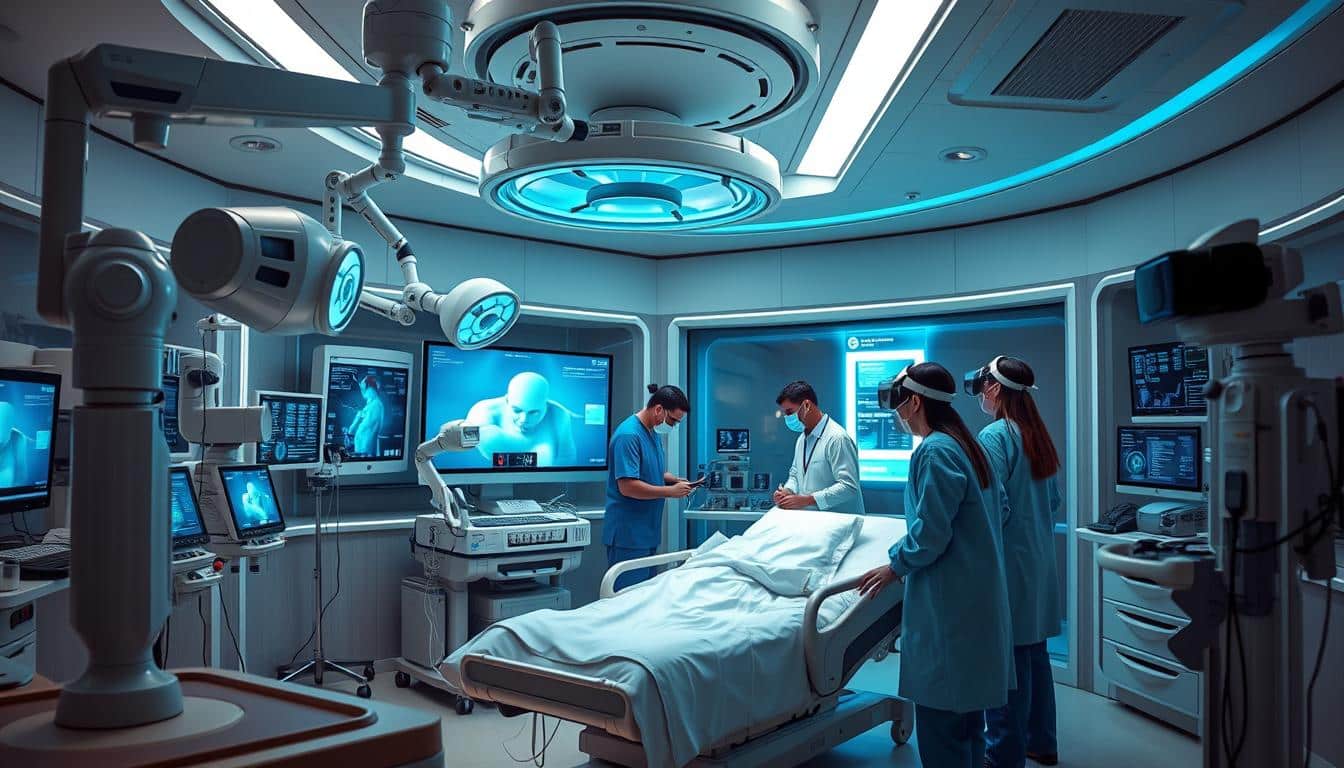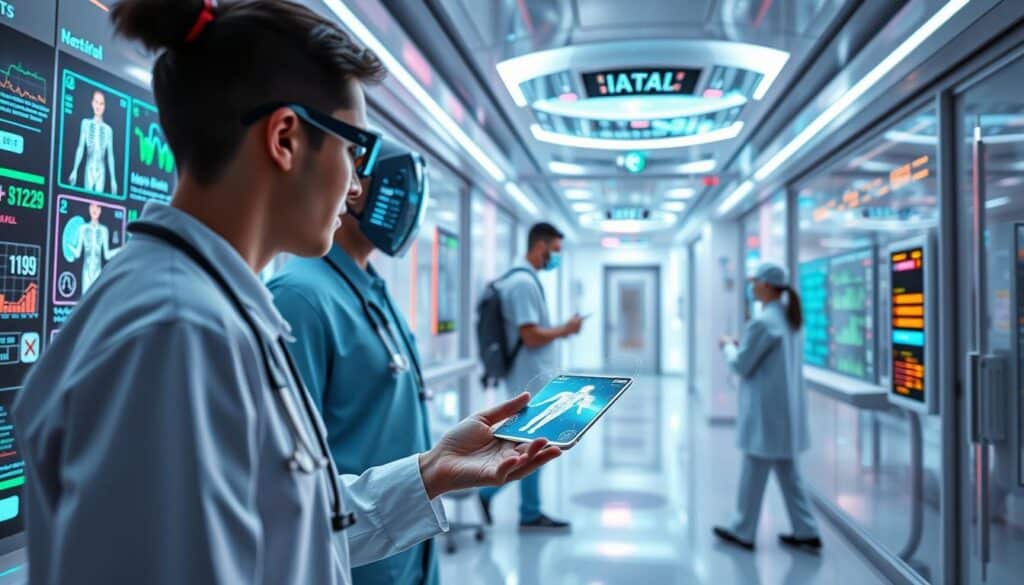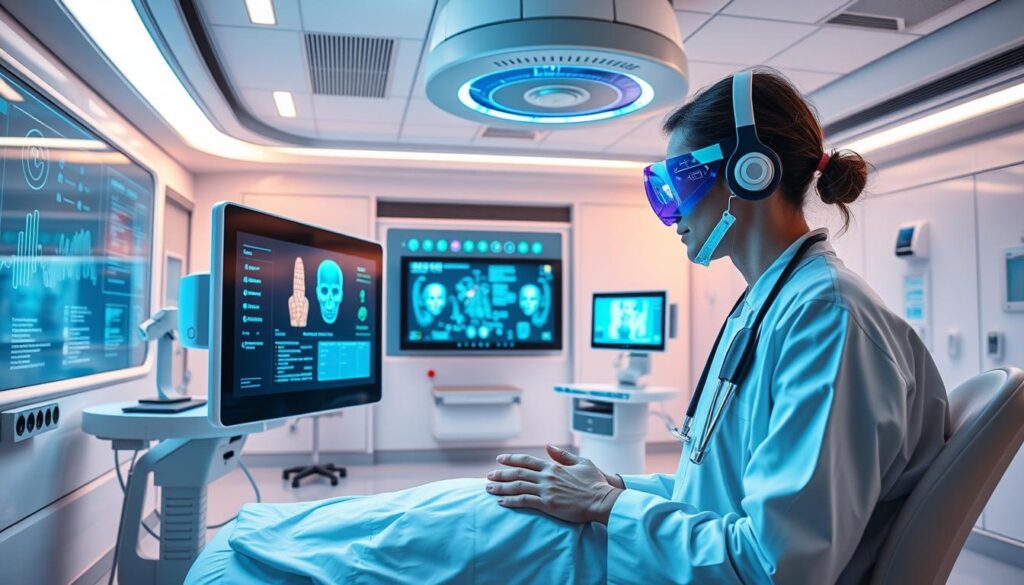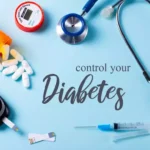The healthcare industry has seen a big change thanks to fast technology growth. It started with new medicines and imaging tools like MRI scanners. Now, technology is key in making treatments better, more accessible, and tailored to each patient.
Technology has changed how doctors diagnose and treat many health issues. It makes treatments more effective and precise. It also helps healthcare workers and patients work better together. As technology keeps getting better, it will likely change healthcare even more, making it more focused on the patient and tackling healthcare challenges in new ways.
Key Takeaways
- Technological innovations have revolutionized modern medical treatments, improving patient outcomes and the quality of care.
- Advancements in diagnostics, surgical techniques, and personalized therapies have enhanced the precision and efficiency of healthcare.
- Enhanced communication and patient monitoring technologies have transformed the way healthcare providers and patients interact and collaborate.
- Health information technology is revolutionizing clinical decision-making and facilitating groundbreaking research and clinical trials.
- Communication technologies are empowering patients by providing access to educational resources and evidence-based guidelines.
Medical Treatments: Driven by Technological Advancements
The healthcare industry has seen a big change thanks to fast technology growth. Now, we have better diagnostics and treatment methods. This has greatly improved care quality and patient results.
Precision and Efficiency in Healthcare
New medical devices like MRI scanners and laser surgeries have changed how we diagnose and treat patients. These tools help doctors see inside the body with great accuracy. This means finding problems early and treating them more effectively.
Thanks to this, treatments work better, and patients recover faster.
Improved Access to Medical Resources and Information
The internet has made it easier to find important medical info. Patients and doctors can now look up the latest research and advice from anywhere. This has made everyone more informed, leading to better care for everyone.
| Technology | Impact on Medical Treatments |
|---|---|
| MRI Scanners | Enables detailed, high-resolution imaging for early problem detection and more precise diagnosis. |
| Laser Surgery | Provides a more precise, minimally invasive approach, leading to faster recovery times and better outcomes. |
| Online Medical Resources | Allows patients and healthcare providers to access the latest research, treatment guidelines, and medical data. |
These new technologies have changed healthcare for the better. They make care more precise, efficient, and accessible. As technology keeps improving, we can expect even more personalized care. This will lead to better health outcomes and a better life for everyone.
Transforming Healthcare Communication and Patient Tracking
The healthcare industry has seen big changes thanks to new technology. These changes have made how doctors talk to patients and keep track of their health much better. This has made care quality go up and made things easier for patients.
Enhanced Communication with Patients and Providers
Now, telehealth and video calls let doctors talk to patients from anywhere. This helps people in far-off places get the care they need. Secure emails and messages also help doctors and patients talk directly, making sure care is on track.
Streamlined Patient Health Monitoring
Electronic health records and bar code tech have changed how doctors handle patient info. They put all medical info in one place, making it easy to share and use. This has made finding out what’s wrong and treating it faster, especially for ongoing health issues.
| Key Technological Advancements | Impact on Healthcare Communication and Patient Tracking |
|---|---|
| Telehealth and video conferencing | Improved access to medical care and enhanced patient-provider communication |
| Secure email and messaging platforms | Facilitated direct communication between healthcare providers and patients |
| Electronic health records and bar code technology | Streamlined management of patient data, improved efficiency in diagnosis and treatment |
“Technology has transformed the way we deliver healthcare, empowering providers to connect with patients more effectively and manage medical information more efficiently.”
Elevating Care Quality and Personalization
Technology has changed the way we treat medical conditions, making care better and more tailored to each patient. Tools like defibrillators and blood pressure monitors save lives in emergencies. CPR and advanced medical gear help doctors and nurses give quick, effective care.
3D printing has changed medicine too. It lets us make custom prosthetics and implants. This makes treatments better and builds a stronger bond between patients and their doctors.
Pharmacogenomics has changed how we use medicines. It lets doctors choose the right drugs for each person by looking at their genes. This reduces side effects and makes treatments work better.
Technology also lets patients take charge of their health. With health IT, they can check their health data and work with doctors more closely. This leads to better health outcomes and more patient involvement in care.
| Technology | Impact on Care Quality and Personalization |
|---|---|
| Defibrillators and Blood Pressure Monitors | Enhance emergency response and life-saving capabilities |
| Cardiopulmonary Resuscitation (CPR) | Improve the effectiveness of emergency medical interventions |
| 3D Printing | Enable the creation of customized prosthetics, implants, and organ models for personalized care |
| Pharmacogenomics | Facilitate more personalized and effective drug therapies based on individual genetic profiles |
| Health Information Technology | Empower patients to actively participate in their healthcare journey |
As technology in medicine keeps getting better, we can expect even more improvements in care. From saving lives with new devices to making treatments fit each person, these changes are set to change healthcare for the better.
The Role of Health Information Technology
Health information technology (HIT) is changing healthcare big time. It’s making decisions easier and helping with research. This tech is set to make patients safer and care better, and it’s bringing new ideas to medicine.
Revolutionizing Clinical Decision-Making
HIT is key in making decisions better. It gives doctors real-time patient data. This cuts down on mistakes, makes diagnoses more accurate, and helps plan better treatments.
With advanced analytics and predictive models, doctors can make choices based on solid evidence. This leads to better health outcomes for patients.
Facilitating Clinical Trials and Research
HIT is changing how we do clinical trials and research. It automates data collection. This makes finding the right patients faster, tracking them easier, and keeping an eye on safety.
This approach speeds up finding new treatments. It also makes research better and more reliable. This is good for patients and helps healthcare move forward.
| Benefits of Health Information Technology | Impact on Clinical Decision-Making | Impact on Clinical Trials and Research |
|---|---|---|
|
|
|
The healthcare world is always changing. Health information technology will play a big part in this change. It will drive innovation, improve health outcomes, and change how we practice medicine.
By using HIT, doctors and researchers can explore new ways to make decisions and run trials. This will make patients safer and improve the care they get.
Communication Technology in Medical Treatments
Communication technology is changing how we treat medical conditions today. Doctors use new tools to model patient risks and improve care quality. They also give patients educational resources to help them.
Risk Modeling and Evidence-Based Guidelines
Healthcare pros use tech to better understand disease risks. This helps them spot patients at high risk and watch them closely. They also follow evidence-based guidelines to give top-notch care.
Empowering Patients with Educational Resources
Studies show how tech can help make educational materials for patients. This gives people a better grasp of their health, helping them make smarter choices. With communication technology, doctors can give personalized patient education and support disease management. This leads to better healthcare quality and patient outcomes.
| Communication Technology in Medical Treatments | Impact |
|---|---|
| Risk Modeling | Identify high-risk patients for targeted monitoring and interventions |
| Evidence-Based Guidelines | Equip medical professionals with the latest information and recommendations |
| Patient Education Resources | Empower individuals with a deeper understanding of their health conditions |
“Communication technology is transforming the way we approach medical treatments, allowing us to deliver more personalized, evidence-based care that empowers patients to take an active role in their health.”
Also Read : What Subjects Are Studied In Medical College?
Conclusion
Technology has changed how we treat medical conditions today. It brings better diagnostics and helps doctors talk to patients more easily. This has made healthcare better and easier to get.
Looking ahead, we see big changes coming. Things like better decision-making, watching over patients, and treatments made just for them are on the horizon. These changes could make patients’ lives better and move medicine forward.
Technology has made healthcare work better and faster. It gives people more access to important health info and tools. It also changes how doctors make decisions and helps with research and trials.
Even with challenges, the future of medicine looks bright. As technology gets better, we’ll see big changes in healthcare. These changes will help patients, doctors, and everyone in the community.
These new technologies promise to make patients’ lives better, save money, and move healthcare forward. We’re excited to see what the future holds.
FAQs
Q: How does technology improve the diagnosis of diseases?
A: Technology enhances the diagnosis of diseases through advanced diagnostics such as x-rays, MRIs, and laboratory tests. These tools allow health professionals to accurately identify symptoms and classify diseases or disorders, leading to more effective treatment options.
Q: What are some treatment options available through modern medical technology?
A: Modern medical technology offers a variety of treatment options, including medication prescriptions, physical therapy, surgical procedures, and palliative care. These treatments can significantly affect a patient’s quality of life, especially for chronic illnesses like diabetes and obesity.
Q: How do health professionals utilize technology in patient care?
A: Health professionals utilize technology to improve patient care by employing electronic health records for better data management, telemedicine for remote consultations, and diagnostic tools for accurate examination of symptoms. This integration aids in timely disease prevention and treatment.
Q: What is the definition of medical technology in relation to treatment procedures?
A: The definition of medical technology encompasses various tools and devices used in the diagnosis, treatment, and monitoring of patients. This includes everything from imaging equipment to robotic surgical systems that enhance the precision of medical procedures.
Q: Can technology aid in the prevention of diseases?
A: Yes, technology plays a crucial role in disease prevention through immunization programs, health monitoring apps, and educational platforms that inform patients about risk factors and healthy practices. These tools help individuals adapt their lifestyles to reduce the risk of developing chronic conditions.
Q: What types of medical treatments have been revolutionized by technology?
A: Types of medical treatments that have been revolutionized by technology include minimally invasive surgeries, targeted drug therapies for cancer, and advanced dialysis techniques for kidney failure. These advancements have improved outcomes and recovery times for patients.
Q: How do advancements in medical technology affect patient outcomes?
A: Advancements in medical technology positively affect patient outcomes by providing more accurate diagnostics, effective treatment options, and improved monitoring of health conditions. This can lead to earlier interventions and better management of diseases or disorders.
Q: What role does technology play in enhancing the quality of life for patients?
A: Technology enhances the quality of life for patients through innovations such as mobile health applications, remote monitoring devices, and telehealth services. These tools allow for continuous support, timely interventions, and personalized care plans that cater to the patient’s specific needs.
Q: How can patients benefit from technological advancements in their treatment plans?
A: Patients can benefit from technological advancements in treatment plans by receiving more personalized care, having access to a complete list of treatment options, and experiencing greater convenience through telehealth services. These factors contribute to better management of their health and improved outcomes.








